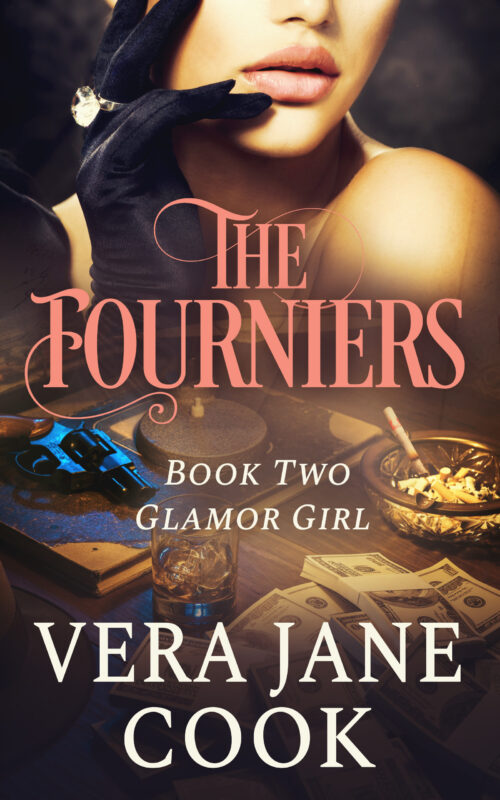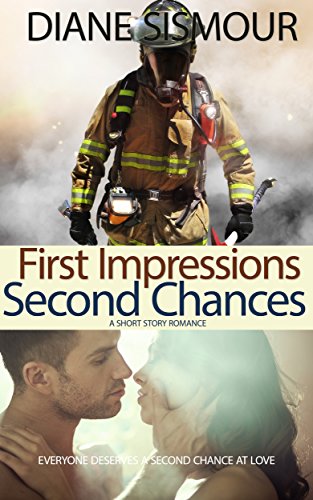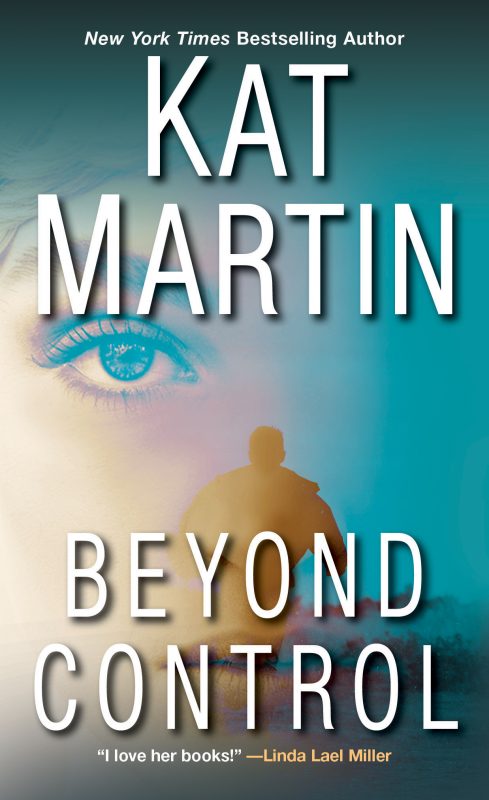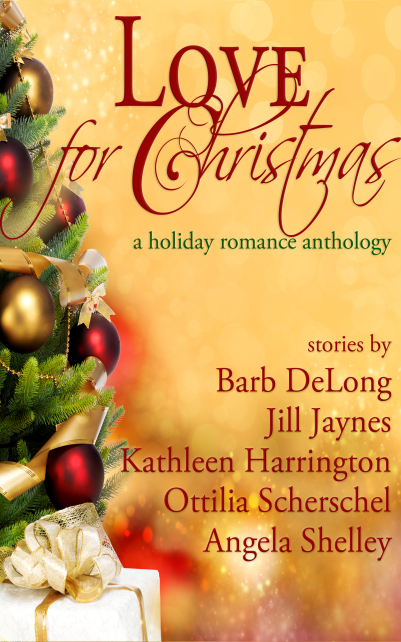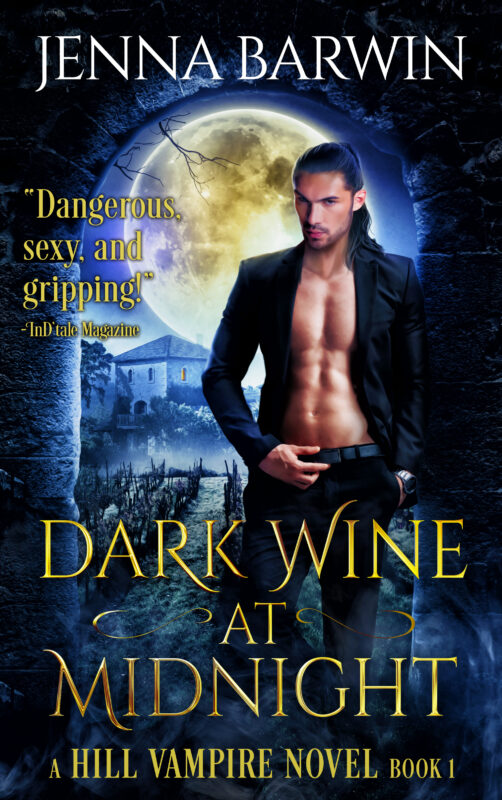What’s In A Name? More Than You Might Think
July 16, 2014 by Linda McLaughlin in category The Romance Journey by Linda Mclaughlin tagged as history, Linda McLaughlin, names, research, writingIn Romeo and Juliet, Shakespeare wrote, “What’s in a name? A rose by any other name would smell as sweet.” As we soon learned, Juliet’s name was extremely important. She was just any Juliet; she was a Capulet, mortal enemies of Romeo’s Montagu family.
 |
|
| copyright 2004 Art Explosion |
As any writer knows, finding the right name for your character is important, esp. the first name. Personal names come with expectations, even the historically improbable ones. Can you imagine Amber St. Claire of Forever Amber as Mary or Nancy? I didn’t think so. I read that Poppy was one of the names Margaret Mitchell considered for her southern belle before she came up with Katie Scarlett O’Hara. Somehow Poppy O’Hara just doesn’t have the same ring to it! Poppy sounds more like a servant girl.
Names have ethnic, class and sometimes religious connotations. Algernon and Reginald, for instance. Not exactly common working men names.
What do Sean, Ian and Ivan all have in common? They are all variants of John, but you wouldn’t name a character Ivan unless he’s from a Slavic country or background. In historical times, the same was true for Sean and Ian. Sean was Irish; Ian Scottish, and historical romances notwithstanding, no upstanding English aristocrat of the past would have allowed his son to be christened Sean or Ian. The priest wouldn’t have allowed it. The parish register would have shown the name as John.
In past centuries, the personal name stock was much smaller than it is now, though not necessarily the same. Prior to the Protestant Reformation, saint names were common. The stricter Protestants rejected many saint names in favor of Biblical names, like Hester and Ezekiel, and even more obscure names. They also invented the so-called virtue names: Faith, Hope, Charity, Prudence, etc.
When choosing names for a historical novel, I look in a book like The New American Dictionary of Baby Names by Leslie Dunkling and William Gosling that gives some historical context for the names. Plus I love the authors’ surnames. I keep thinking it should be Duckling and Gosling, though.
Surnames came into general use in the Middle Ages, and usually come from one of four sources: place of residence, occupation, nickname or patronymics, such as Johnson, Anderson, Davison. In Scotland, Mac at the beginning of a name means son of. In Ireland it’s Mc or O. Patronymics are common to many European countries. The Scandinavian countries also used matronymics, ending in dottir.
When writing an aristocratic character, I look for a less common place name, as the nobility and gentry were usually landed and were likely to take their surname from (or have given it to) the name of their estate. However, the older aristocratic were most likely descended from the Norman invaders and you can find a list of Anglo-Norman names at Wikipedia. Interestingly, Montaigu is one of the names listed. You can also find lists of British titles at Wikipedia, among other online sources. Burke’s Peerage is one of two definitive guides to the aristocracy, but it’s extremely expensive (over $800). You might be able to find an older copy at a local library. The other definitive source on the nobility is DeBrett’s Peerage.
Occupational surnames usually indicate humbler origins. Nearly every village had its baker, blacksmith, cooper, carter, miller and tailer. A few noted exceptions are Stewart, Spencer and Chamberlain, occupational titles of highly placed employees in the royal courts. The royal Stewart ancestors held the title High Steward of Scotland from the 12th century until Robert II became king in the 14th century.
Names based on nicknames, originally called bynames, were used to distinguish two people in a village with the same first name. Bynames include handles like Short and Littlejohn. These were not originally intended as long-term family names but evolved into that.
In the late nineteenth century, Henry Brougham Guppy made a study of farm family surnames as he considered them the most stay-at-home group in the county. In 1890 he published Homes of Family Names in Great Britain in which he categorized names by how common or unusual they were. He found that certain names were “peculiar” to primarily one county. Those are referred to as Guppy’s peculiar names. His book is now available from Project Gutenburg and Google Books.
American surnames come from all around the world and provide a great deal more variety for the novelist than other countries. I became fascinated with names when I was researching my family history. Hunting down my German ancestors was a challenge because the surnames were rarely spelled the same way twice. One of my ancestors started life as Conrad Buchle in Wurttemberg, Germany. A few generations later, his descendents last name was Beighley.
When I started writing around 1988, I collected every name book I could find that had any value for writing historical romance, and boy am I glad I did. Most of them are now out of print, but may be available as used books or in your local public or university library. You’ll find a brief list. I’ll hunt for more. I’m going to be speaking at OCCRWA on writing historical romance in August.
Name Sourcebooks:
American Surnames by Elsdon C. Smith, Genealogical Publishing Company, 2009. http://amzn.com/0806311509
Burke’s Peerage, Baronetage and Knightage, Burke’s Peerage, 107th Edition 2003 http://www.amazon.com/Burkes-Peerage-Baronetage-Knightage-107th/dp/0971196621/
A Dictionary of First Names, Patrick Hanks and Flavia Hodges, 2nd ed., Oxford Paperback Reference, Oxford University Press, 2006. Out of print.
The New American Dictionary of Baby Names, Leslie Dunkling and William Gosling, Signet, 1985, 1991. Better than the average baby name book because it gives some historical context for names. Out of print now.
New Dictionary Of American Family Names by Elsdon C. Smith, Gramercy Publishing, 1988, out of print.
The Oxford Dictionary of English Christian Names by E. G. Withycombe, Oxford University Press; First American edition edition 1947, paperback 1986. Out of print.
The Writer’s Digest Character Naming Source Book, Sherrilyn Kenyon, Writer’s Digest Books, 1994. Available at Amazon.com
Linda McLaughlin
0 0 Read moreemaginings: e-Books Older Than You May Think @LyndiLamont
June 16, 2014 by Linda McLaughlin in category The Romance Journey by Linda Mclaughlin tagged as Amazon Kindle, e-books, emaginings, historyA few weeks ago, a blog I was reading mentioned something to the effect of “when e-books were new back in 2007-2009” which left me both amused and nostalgic.
News flash: e-books have been around since at least 1971 when Project Gutenberg started digitizing public domain works. The US Declaration of Independence was the first document chosen. Check the Wikipedia page for more early e-book history.
I started reading e-books in 1999 on my laptop. I’d gone to the Romance Writers of America conference in Chicago and signed up to moderate a panel. By sheer serendipity, I was assigned to moderate the e-book panel presented by Janet Lane Walters and the late great Jane Toombs, two true e-book pioneers. I came away with an interest in e-books and a couple of samples on 3 1/2 inch diskettes. (Remember those?)
Back home, I read the books on my laptop using either Adobe Acrobat or an Internet browser, depending on whether the format was PDF or HTML. I’m a voracious reader and book buyer, and the house was already full of print books. The idea of being able to store book on my computer seemed like a godsend to me. A way to buy and hoard, I mean, store books without cluttering my already cluttered house. I was hooked!
 Commercial e-books were in their infancy, but dozens of small publishers sprang up, most of them no longer in business. Ellora’s Cave is the best known of the early small e-book houses. My publisher, Amber Quill Press, started in 2002. Romance readers got hooked early, and small presses deserve credit for reviving the paranormal romance genre, which NY had lost interest in, for feeding the erotic romance craze and for pioneering gay erotic romance.
Commercial e-books were in their infancy, but dozens of small publishers sprang up, most of them no longer in business. Ellora’s Cave is the best known of the early small e-book houses. My publisher, Amber Quill Press, started in 2002. Romance readers got hooked early, and small presses deserve credit for reviving the paranormal romance genre, which NY had lost interest in, for feeding the erotic romance craze and for pioneering gay erotic romance.
While e-book readers were a tiny minority at first, the growth was explosive, often 50% in a year. The numbers didn’t start to hit critical mass until Amazon got into the game with the Kindle 1 in late 2006, though Sony gets the credit for having the first available e-ink reader. There were commercial e-readers available before the Sony Reader and the Kindle: the original Rocket e-book reader, its successor the RCA Gemstar 1100, using my stylus to make selections. (You had to press a lot harder than on a tablet.) Also, books could be read on the little PDAs, like the Palm Pilot and Pocket PC. I read a lot on my Sony Clie and on my RCA Gemstar until it quit on me. By then, Amazon was about to release the Kindle, so I ordered one and never looked back.
In 2006, Janet Cornelow and I took pictures of each other reading on our e-book devices for a contest at Fullerton Public Library. We thought it would be cool if tow of the photos showed people reading electronically. Needless to say, I did not win. The picture above shows Janet reading on her RCA eBookwise.
Sony produced the first e-ink reader, beating the Kindle, but Amazon’s real innovation, the one that made it the leader in the industry, was the one-click purchase followed by wireless delivery directly to your device. No more having to buy from the publisher’s site–with different accounts at each site, were we dedicated ebook readers or what?–download the books to your computer and then side load your e-books using the USB cable. This step took e-book reading beyond the limits of the technologically proficient among us. The ability to download a sample before buying was (and still is) another popular feature. I was an early adopter of the Kindle 1 and still have my device, though it’s no longer in use. I’ve moved on to a Kindle Keyboard and the iPad.
Do you read e-books? If so, when did you start and what device(s) do you use?
Linda McLaughlin / Lyndi Lamont
New website: http://lindalyndi.com
Blog: http://lindalyndi.com/reading-room-blog/
Twitter: @LyndiLamont
emaginings: Life Off the Grid
May 16, 2014 by Linda McLaughlin in category The Romance Journey by Linda Mclaughlin tagged as 21st century, emaginings, Linda McLaughlin, reading, technologyI’ve been hiding out at the beach this week to stay out of the worst of the heat, but I didn’t plan on losing cable TV & Internet for the better part of two days. It reminded me of what life was like before the advent of the worldwide web. In some ways, it was even more retro than that, since we’re in a near dead zone here. Broadcast TV consists of three San Diego digital stations, when we can pick them up on the antenna. The iPad cellular connection is so bad here, it’s like going back to modem service. I mean sloooow. The most reliable technology we had was the radio. Turned out a cable guy had come into the neighborhood to hook up a new customer and somehow disconnected us in the process. My husband muttered about sabotage, but I reminded him that one should never assume malice until incompetence has been completely ruled out.
Now I’m done complaining, I have to admit it wasn’t all bad, because for the first time in quite a while, I sat and read. I’d picked up Naamah’s Kiss by Jacqueline Carey, a big hard cover fantasy novel on Sunday, expecting it would take weeks to read it. But without the distraction of the Internet, I grabbed the book, curled up in the recliner and real. It was pure bliss. (And yes, I know I could have been writing!) It was kind of odd to be reading print again. Late at night I was wishing I could make the font bigger. But it was good to relax and enjoy a big book, reminiscent of the long hot summers of my teen years in Azusa that I spent devouring every library book I could get my hands on.
The previous month was a pretty hectic one for me. I’m working on setting up a new blog and website, so I’ve been learning how to create WordPress pages and set up a nav system, and so on. I hope to have the new site ready before next month’s blog. I also took our own Elena Dillon’s awesome online class Social Media for the Dazed and Confused. I’m still dazed by all the information she threw at us, but maybe a little less confused. Seriously, if you have a chance to take a class from her, jump at it.
Life in this 21st century is a lot more complicated than it was way back in the 20th century, but believe me, we’ll miss all this technological interconnectedness if it ever goes away. And if you’re interested in a little nostalgia, check out this post about 10 Concepts That Didn’t Exist 10 Years Ago. (She’s right about nine of them. I’ve been reading e-books longer than that.)
Which piece of 21st century technology would you miss most? Your smart phone, iPad, laptop, flat screen TV? There are so many choices, I’m not sure.
Linda McLaughlin / Lyndi Lamont
0 0 Read moreemaginings: To Blog or Not To Blog? @LyndiLamont
March 16, 2014 by Lyndi Lamont in category The Romance Journey by Linda Mclaughlin tagged as #RLFblog, blogging, emaginings, Kayelle Allen, Kristen Lamb, Marketing For Romance Writers, Rise of the Machines, Triberr, TwitterTo Blog or Not To Blog? That is one question every writer must ponder.
I have a love/hate relationship with blogging. It’s not that I mind doing it, but I resent the time involved that takes me away from writing, and I’m not sure blogging has been worth my while. What I am sure is that I haven’t gone about it in a very systematic or effective way, though I try.
My big project for this year is to launch a new website and blog combining both of my writing names into one site, for easier maintenance. In the meantime, I’m still learning as much as I can about author branding, platforms and the use of blogs.
 In January, I read Rise of the Machines: Human Authors in a Digital World by Kristen Lamb, the well-known blogger and social media maven. The first chapter, The Changing Paradigm, was fascinating. She talks a lot about technological change in general, often quoting from Neil Postman, author of several books, including Technopoly. His contention was that technological change isn’t “addictive or subtractive but ecological”. Advances in technology change everything, including the way humans think, certainly changes the way we talk and write. Hashtags, emoticons, text speak… You all know what I’m talking about, like the changes or not.
In January, I read Rise of the Machines: Human Authors in a Digital World by Kristen Lamb, the well-known blogger and social media maven. The first chapter, The Changing Paradigm, was fascinating. She talks a lot about technological change in general, often quoting from Neil Postman, author of several books, including Technopoly. His contention was that technological change isn’t “addictive or subtractive but ecological”. Advances in technology change everything, including the way humans think, certainly changes the way we talk and write. Hashtags, emoticons, text speak… You all know what I’m talking about, like the changes or not.
Lamb is a big proponent of blogging, and while I value her advice, I’m not sure I can manage to do everything she recommends. But after reading her book, I think I have a better notion of what to do and, perhaps more importantly, what not to do. Some of her advice includes:
Be present on social media, at least some of the time; don’t automate everything.
Your name is your brand; use it in some version. Don’t tweet with a silly handle that no one will recognize.
Be careful what you share, esp. where politics and religion are concerned.
I wish her book had been available eight years ago when I started blogging, but as Kitty Bucholtz said in her time management class, it’s never too late to hit the Restart button. I’m hoping to do better when I get the new, better blog later this year, and I’d love to take a branding class from her some day.
In the meantime I have finally joined Triberr, the “Home of Influencers.” If you’re not familiar with Triberr, it’s a blog amplifier. Bloggers ban together in tribes and tweet each other’s blog posts, giving everyone an enhanced range. Since I joined, my blogs are getting tweeted more often, my page stats have shot up, and I’ve picked up new followers at Twitter. I’m still not getting a lot of comments, but I think that’s somewhat normal. Unless there’s a giveaway or a controversy, people are not inclined to comment a lot, esp. where the dreaded Capcha is involved. Personally, I hate those things. So does Kristen Lamb.
For more information on Triberr and how it interacts with Twitter, check out this post by Kayelle Allen, founder of Marketing For Romance Writers and another Social Media maven:
Blog Titles Matter in Triberr: Tips for Authors by Kayelle Allen #RLFblog #author
So to blog or not to blog? What is your answer. Leave a comment if you can get past the Capcha!
And if social media generally has you befuddled, OCC’s own Elena Dillon will be teaching an online class on Social Media for the Confused and Terrified from April 14 – May 11, 2014. I’m not terrified, but I often find myself confused, so I’ll be taking the class.
Linda McLaughlin / Lyndi Lamont
0 0 Read moreGetting Organized in Digital Age: Mission Impossible? @LyndiLamont
January 16, 2014 by Lyndi Lamont in category The Romance Journey by Linda Mclaughlin tagged as Linda McLaughlinAnother January, another set of resolutions some of us will never keep. Is it futile?
I wish I knew the answer to that age-old question. I suspect resolutions and/or yearly goals work for some people but not others. Or maybe they work some years but not others. There are organizing methods that work for some people, but not everyone. All I do know is that I have to try doing something different this year to make some sense out of my messed up schedule. That won’t eliminate the chaos in my creatively messy mind though.
In the interests of organization, I signed up for the current OCC/RWA online class Going the Distance: Time Management for the Writer taught by our own Kitty Bucholtz. The class has just started but I’m hopeful of learning new techniques to use my precious time more productively. Goal setting will be part of the process. I’ve had good luck with that technique before, when I’ve paid attention to my goals and taken steps to meet them. Goals somehow seem more serious than “New Year’s Resolutions” which have a bad track record, plus goals can be revised or abandoned in favor of something better. Once a New Year’s resolution is abandoned, it’s all over until the next year. Right?
Here’s a blog article by James Clear (recommended by Alina K. Field) that I found interesting:
Why Trying to Be Perfect Won’t Help You Achieve Your Goals (And What Will)
Rather than worrying about goals and resolutions he recommends focusing on repetitive behavior, i.e. creating habits that will keep you moving towards whatever it is you want to accomplish.
Author P. J. Sharon wrote a blog this week on sticking to your plan that you may find interesting.
I swear this was all easier in the 20thy century. Nowadays social media is such a distraction. I set out to read my email in the morning, but keep finding interesting links to click on, or something that cries out to be tweeted, and before I know it, I have seven or eight tabs open in Firefox and two hours have disappeared, never to be seen again.
In the cause of taming the social media monster, here are links to a couple of blog posts you may find helpful. Don’t be put off by the title of the first. It’s a pretty good beginner’s guide to Twitter, and I found some helpful ideas in it.
The Ultimate Twitter Guide to Crush Your Competition
Infographic: The Secrets of a Killer Blog Post
At the Marketing for Romance Writers blog, Erin Moore asks: Newbie World: Do I Really Need Social Media? Good advice for the new author.
Middle Grade author Chris Eboch on A Year of Success contains more links to older blog posts on the subject.
If anyone reading this post has any brilliant ideas or getting or staying organized, please let me know. Will you be setting goals? How did you do in 2013? I’d love to hear about your successes.
Hope to have some progress to share next month.
Linda McLaughlin / Lyndi Lamont
Linda McLaughlin grew up with a love of books and history, so it’s only natural she prefers writing historical romance. She loves transporting her readers into the past where her characters learn that, in the journey of life, love is the sweetest reward.
She also writes erotic romance under the name Lyndi Lamont, and is one half of the writing team of Lyn O’Farrell.
You can find her online at http://www.lindamclaughlin.com or http://www.lyndilamont.com.
Blog: http://flightsafancy.blogspot.com/
Facebook:
Linda McLaughlin Author http://www.facebook.com/LindaMcLaughlinAuthor
Lyndi Lamont http://www.facebook.com/LyndiLamont
Twitter: @LyndiLamont
Affiliate Links
A Slice of Orange is an affiliate with some of the booksellers listed on this website, including Barnes & Nobel, Books A Million, iBooks, Kobo, and Smashwords. This means A Slice of Orange may earn a small advertising fee from sales made through the links used on this website. There are reminders of these affiliate links on the pages for individual books.
Search A Slice of Orange
Find a Column
Archives
Featured Books
FIRST IMPRESSIONS SECOND CHANGES
Everyone deserves a second change at love.
More info →BEYOND CONTROL
Present Danger—When Victoria Bradford got engaged, she told herself to give love a chance. Six months later, she's on the run from her angry, abusive ex-fiancé with her four-year-old daughter and nowhere to go.
More info →DARK WINE AT MIDNIGHT
To save humanity, a reluctant spy must convince a handsome vampire to trust her, despite the dark secrets each carries, and the mutual attraction they can’t resist.
More info →Newsletter
Contributing Authors
Search A Slice of Orange
Find a Column
Archives
Authors in the Bookstore
- A. E. Decker
- A. J. Scudiere
- A.J. Sidransky
- A.M. Roark
- Abby Collette
- Alanna Lucus
- Albert Marrin
- Alice Duncan
- Alina K. Field
- Alison Green Myers
- Andi Lawrencovna
- Andrew C Raiford
- Angela Pryce
- Aviva Vaughn
- Barbara Ankrum
- Bethlehem Writers Group, LLC
- Carol L. Wright
- Celeste Barclay
- Christina Alexandra
- Christopher D. Ochs
- Claire Davon
- Claire Naden
- Courtnee Turner Hoyle
- Courtney Annicchiarico
- D. Lieber
- Daniel V. Meier Jr.
- Debra Dixon
- Debra H. Goldstein
- Debra Holland
- Dee Ann Palmer
- Denise M. Colby
- Diane Benefiel
- Diane Sismour
- Dianna Sinovic
- DT Krippene
- E.B. Dawson
- Emilie Dallaire
- Emily Brightwell
- Emily PW Murphy
- Fae Rowen
- Faith L. Justice
- Frances Amati
- Geralyn Corcillo
- Glynnis Campbell
- Greg Jolley
- H. O. Charles
- Jaclyn Roché
- Jacqueline Diamond
- Janet Lynn and Will Zeilinger
- Jaya Mehta
- Jeannine Atkins
- Jeff Baird
- Jenna Barwin
- Jenne Kern
- Jennifer D. Bokal
- Jennifer Lyon
- Jerome W. McFadden
- Jill Piscitello
- Jina Bacarr
- Jo A. Hiestand
- Jodi Bogert
- Jolina Petersheim
- Jonathan Maberry
- Joy Allyson
- Judy Duarte
- Justin Murphy
- Justine Davis
- Kat Martin
- Kidd Wadsworth
- Kitty Bucholtz
- Kristy Tate
- Larry Deibert
- Larry Hamilton
- Laura Drake
- Laurie Stevens
- Leslie Knowles
- Li-Ying Lundquist
- Linda Carroll-Bradd
- Linda Lappin
- Linda McLaughlin
- Linda O. Johnston
- Lisa Preston
- Lolo Paige
- Loran Holt
- Lynette M. Burrows
- Lyssa Kay Adams
- Madeline Ash
- Margarita Engle
- Marguerite Quantaine
- Marianne H. Donley
- Mary Castillo
- Maureen Klovers
- Megan Haskell
- Melanie Waterbury
- Melisa Rivero
- Melissa Chambers
- Melodie Winawer
- Meriam Wilhelm
- Mikel J. Wilson
- Mindy Neff
- Monica McCabe
- Nancy Brashear
- Neetu Malik
- Nikki Prince
- Once Upon Anthologies
- Paula Gail Benson
- Penny Reid
- Peter J Barbour
- Priscilla Oliveras
- R. H. Kohno
- Rachel Hailey
- Ralph Hieb
- Ramcy Diek
- Ransom Stephens
- Rebecca Forster
- Renae Wrich
- Roxy Matthews
- Ryder Hunte Clancy
- Sally Paradysz
- Sheila Colón-Bagley
- Simone de Muñoz
- Sophie Barnes
- Susan Kaye Quinn
- Susan Lynn Meyer
- Susan Squires
- T. D. Fox
- Tara C. Allred
- Tara Lain
- Tari Lynn Jewett
- Terri Osburn
- Tracy Reed
- Vera Jane Cook
- Vicki Crum
- Writing Something Romantic
Affiliate Links
A Slice of Orange is an affiliate with some of the booksellers listed on this website, including Barnes & Nobel, Books A Million, iBooks, Kobo, and Smashwords. This means A Slice of Orange may earn a small advertising fee from sales made through the links used on this website. There are reminders of these affiliate links on the pages for individual books.


